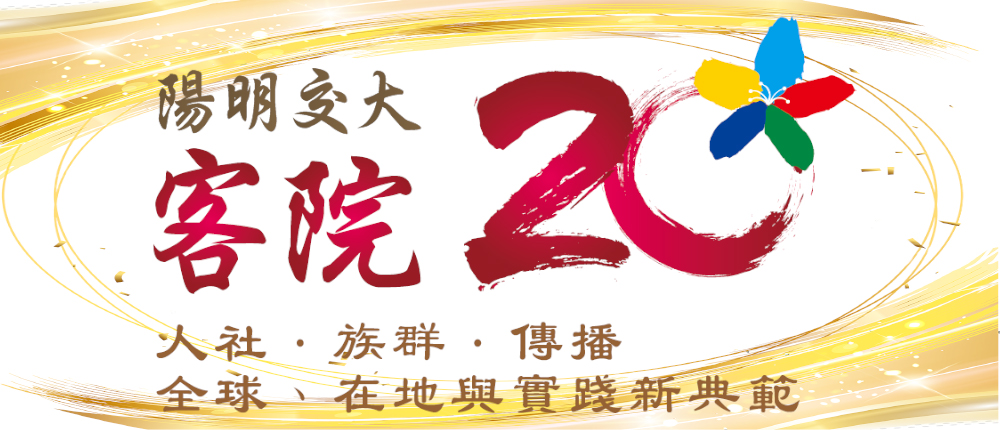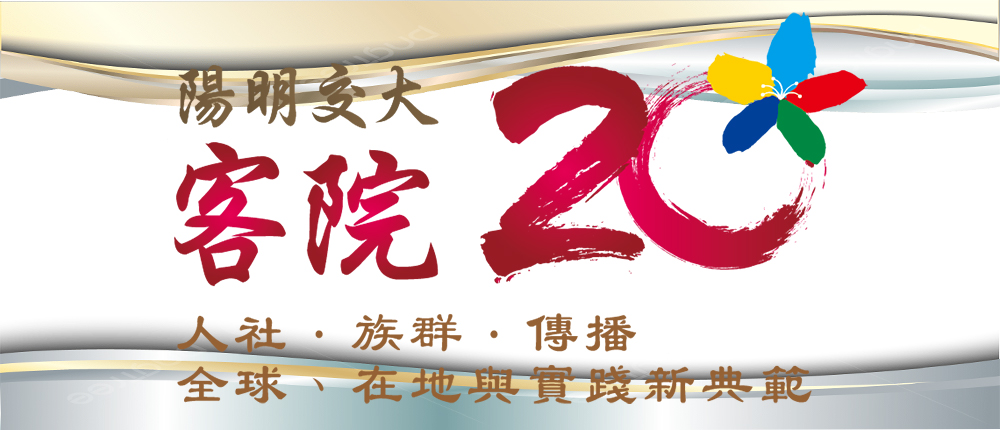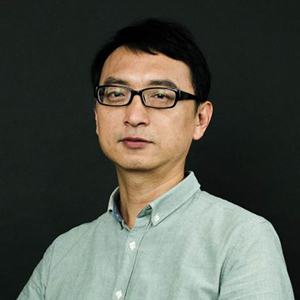|
Education History:
1986 B. A. in Foreign Language and Literature, National Tsing Hua University, Taiwan
1994 M. A. in Anthropology, National Tsing Hua University, Taiwan
2002 Ph.D. in Anthropology, National Tsing Hua University, Taiwan
Biography:
Mei-Ling CHIEN is Professor of Anthropology at National Yang Ming Chiao Tung University. She received her Ph.D. from Institute of Anthropology, National Tsing Hua University, Taiwan. Her special fields include kinship, gender, linguistic anthropology and the anthropology of emotions. She is the author of the three books, Sentiment and Marriage among the Miao in Eastern Guizhou (Guizhou University Press, 2009), Linguistic Ethnography of Kinship, Gender and Multiple Modernity (National Chiao Tung University Press, 2009), and Narratives of Hmub Village Life in Eastern Guizhou: Emotions, Language and Everyday Life (National Yang Ming Chiao Tung University Press, 2022). She has edited a few book volumes including The Hakka: Formation and Transformation (National Chiao Tung University Press, 2010), Global Hakka Studies: Practice and Development (National Yang Ming Chiao Tung University Press, 2021), and One Hundred Years of Traveling To and Fro: The Japanese Scholars and Their Field Trips to the Hakka Areas (Taiwan Hakka Culture Development, Hakka Affairs Council, & College of Hakka Studies, NYCU, 2021). She has published several academic journal articles and book chapters of the Hmub (Hmong/Miao), Hakka Chinese, Overseas Chinese and Pangcah/Amis (one of the Austronesian group) ethnographic studies among Taiwan, Southwest China, Southern China, Malaysia and North America.
Academic Employment:
2024/2- Associate Dean of College of Hakka Studies, National Yang Ming Chiao Tung University, Taiwan
2023/2-2024/1 Acting Dean of College of Hakka Studies, National Yang Ming Chiao Tung University, Taiwan
2023/2- Director, International Center for Hakka Studies, NYCU, Taiwan
2020/8-2023/1 Associate Dean of College of Hakka Studies, National Yang Ming Chiao Tung University, Taiwan
2019/7-2020/1 Visiting Professor, and International Collaborative Project Researcher, Center for Southeast Asian Studies (CSEAS), Kyoto University, Japan
2018/1-2020/12 Convener of Anthropology and Ethnic Studies, Ministry of Science and Technology, Taiwan
2017/8-2019/7 Associate Vice Chancellor for Academic Affairs, National Chiao Tung University, Taiwan
2016/8-2017/7 Associate Dean of College of Hakka Studies, National Chiao Tung University, Taiwan
2014/8- Professor, Department of Humanities and Social Sciences, National (Yang Ming) Chiao Tung University, Taiwan
2013/8-2014/7 Visiting Scholar of Department of Anthropology, Harvard University, USA
2010/8-2013/7 Chair of Department of Humanities and Social Sciences, National Chiao Tung University, Taiwan
2008/8-2014/7 Associate Professor, Department of Humanities and Social Sciences, National Chiao Tung University, Taiwan
2005/2-2008/7 Assistant Professor, Department of Humanities and Social Sciences, National Chiao Tung University, Taiwan
2002/2-2005/1 Assistant Professor, Department of Human Development and Institute of Anthropology, Tzu Chi University, Taiwan
Other Professional Employment
2023/2- Editor in Chief, Global Hakka Studies
2020-2023/1 Executive Editor, Global Hakka Studies
2020-2023 Editorial Board, Taiwan Journal of Religion Studies
2019-2021 Deputy Secretary-general, Consortium of Global Hakka Studies
2017-2019 Editorial Board, Taiwan Journal of Anthropology
2015-2016 Executive Editor, Global Hakka Studies
2013-2014 Dissertation Abroad Supervisor, Department of East Asian Languages & Civilizations; Department of Near Eastern Languages & Civilizations, University of Pennsylvania
2012-2013 Organizing and Scientific Committee, Ninth International Symposium of CORPUS, International Group for the Cultural Studies of the Body, Taipei
2010-2011 Associate Editor, Journal of Hakka Studies
2010 Academic Committee, Chinese University in Hong Kong Press
2009-2010 Deputy Chair, Center of Humanities and Social Sciences, NCTU
2009 Section Chair, “Cross-Cultural Perspective on Marriage and Family,” IUAES
2008 Organizing Committee, SEAA & TSAE Taipei 2009
Academic Award
2021-2023 MOST/ NYCU Scholar Award
2019-2020 CSEAS Scholarship for Visiting Kyoto University, Japan
2013-2014 TUSA Scholar Award for Visiting Harvard University, USA
2010-2022 NSC (MOST)/NCTU (NYCU) Scholar Award
2009, 2012, 2014, 2015, 2017, 2018, 2019, 2022 NCTU/NYCU Research Publication Award
2007-2009 NCTU Scholar Award
Courses Taught
Linguistic Anthropology, Cultural Anthropology, Anthropology of Emotions, Gender Studies, Kinship Studies, Classic Reading of Anthropology, Theories in Anthropology, Field work and Ethnography, Hakka and Gender, Hakka Culture and Society
Research Interest
Topical: kinship, gender, bodily experiences, everyday life, anthropology of emotions, linguistic anthropology, medical anthropology, historical ethnography
Areal: Hmub (Hmong or Miao), Hakka Chinese, Pangcah (Amis, an Austronesian group), Overseas Chinese, South and Southwestern China, Taiwan, and Malaysia
Language Skills
Hokkien, Mandarin Chinese, Classical Chinese, English, Japanese
Field Language: Hmub language, Pangcah language, Hakka language
Research Projects
2022 The Hakka and Ethnic Study in Penang, Malaysia: The Reflections on Landscape, Environmental and Multi-Species Anthropology
2020-2023 The Environmental Anthropological Research on Ethnicity, Mountains, Rivers and Roads in East Yungui Plateau
2018-2020 Project of the Convener of Anthropology and Ethnic Studies
2017-2019 Everydayness, Sense of Place, and Ethnicity: The Study of City Governance, Space Politics and Difference in ASEAN and South Asia
2016-2020 Translation, Trans-boarding, and Everyday Life: The Emergence and Transformation of the Ethnic Experiences of the Overseas and Taiwanese Hakka
2014-2016 Hakka Women’s Imagination and Representation of Diaspora, Homeland and Ethnicity
2013-2014 Governance, Chinese Migration and Cultural Encounters: Study of British Malaysia Archives (1800-1945)
2011-2012 Ethnographic Research of the Women’s Migration and Grouping at a Hakka Village, Malaysia
2011-2014 Multiple Modernities of the Minority in Southwest China: Life Historical Narrations and the Rural Immigrants of the Miao (Hmub) in West China (1930-2010)
Publications
Books
2022 Narratives of Hmub Village in Eastern Guizhou: Everydayness, Emotions and Language (貴州東部村寨物語: Hmub人的日常、情感及語言). Hsinchu: Yang Ming Chiao Tung University Press. (In Chinese and English)
2021 Back and Fourth within One Hundred Years: The Japanese Scholars Who Have Done the Field Works among the Hakka Areas (百年往返: 走訪客家地區的日本學者). College of Hakka Studies, National Yang Ming Chiao Tunh University, and Taiwan Hakka Culture Development Center, Hakka Affairs Council. (With Hironao Kawai) (In Chinese)
2021 The Global Hakka Studies: Practice and Development (全球客家研究的實踐與發展). Hsinchu: Yang Ming Chiao Tung University Press. (With Wei-An Chang) (In Chinese)
2010 The Hakka: Formation and Transformation (客家的形成與變遷). Hsinchu: Chiao Tung University Press. (With Ying-Chang Chuang) (In Chinese)
2009 Sentiment and Marriage among the Miao in Eastern Guizhou (貴州東部苗族的親屬與婚姻). Guiyang: Guizhou University Press. (In Chinese)
2009 Linguistic Ethnography of Kinship, Gender and Multiple Modernity (清水江邊與小村寨的非常對話). Hsinchu: Chiao Tung University Press. (In Chinese)
Journal Articles
2023 Fieldwork and Apprenticeship in Anthropology. Journal of Hubei Minzu University (Philosophy and Social Sciences), 41(1): 10-19. (CSSCI). (In Chinese)
2022 Personal Narratives and Labor Migration: A Retired Guojia Ganbu in Southeastern Guizhou. Southeast Asian Studies, 11(1): 3-12. (April 2022, Kyoto University, Japan). (In English)
2019b Return, Delay and Boundary Making: Exchange, Social Reproduction and the Practice of Duolocal Post-Marital Residence among Rural Societies in East Hui’an, Fujian. Taiwan Journal of Anthropology, 16(2): 87-106. (December 2018) (TSSCI) (In Chinese)
2019a Life Historical Narrations and the Experience of Rural Urban Migration among the Hmub in Eastern Guizhou. Literary Anthropology Studies, 2018(2): 65-81. (In Chinese)
2017 Anonymous Voices and Authorship Politics in Printed Genealogies in Eastern Guizhou. Special Issue: Religion and Ethnicity in Southern China. Asian Ethnicity 18(3): 204-217。(SSCI) (In English)
2016 An Inter-Subjective Ethnography: Cloth and Married Women among Hmub Villages in Eastern Guizhou. Journal of Guangxi University for Nationalities (Philosopy and Social Science Edition), Volume 38, Number 4, 27-38. (CSSCI) (In Chinese)
2015b Leisure, Work and Constituted Everydayness: Mountain Songs of Hakka Women in Colonized Northern Taiwan (1930-1955). Asian Ethnology, Volume 74, Number 1, 2015, 61-87. (SSCI) (In English)
2015a Ancestor, Family and Gendering/Engendered Narrations among Two Elite Hakka Families in Northern Taiwan. Global Hakka Studies, May 2015, 4: 63-112 (In Chinese)
2014 Transcription and Translation of Hmub Antique Songs: A Song Master's Manuscript, Knowledge, Cultural Space and Landscape. Mingsu Chuyi (Journal of Chinese Ritual, Theater and Folklore) 183: 191-252. (TSSCI) (In Chinese)
2012 Boredom, Everydayness, and the Institutionalized Courting and Flirting of the Hmub in East Guizhou. Journal of Archeology and Anthropology 74: 53-88. (TSSCI) (In Chinese)
2009b Cultivating the Ethnographer’s Ear. Special Issue: Bodily Cultivation as a Mode of Learning. Taiwan Journal of Anthropology 7(2): 87-106. (TSSCI) (In English)
2009a Extramarital Court and Flirt of Guizhou Miao. EJEAS (European Journal of East Asian Studies) 8.1 (2009) 135-159. (In English)
2008 “You Two and We Two are Life-long Mates”: Gender Images and Pairing Ideals in Miao Song from Southeastern Guizhou. Journal of History and Anthropology 5(2): 115-149. (CSSCI) (In Chinese)
2007b Make the Feast Ritual and Let Our Village Go toward the World: The Narration of the Local Elites and the Modernity of Miao. Mingsu Chuyi (Journal of Chinese Ritual, Theater and Folklore) 156: 157-203. (TSSCI) (In Chinese)
2007a Rethinking Migration and Localization of the Hakka in Northern Taiwan: Comparative View of Kinship Terminologies. Journal of Hakka Studies 2(1): 1-58. (With Yen Chei Lu and Ying-Chang Chuang) (In Chinese)
2006 Voices, Boundaries, and the Chinese Written Genealogy among the Miao of Eastern Guizhou. Journal of History and Anthropology 4(2): 99-125. (CSSCI) (In Chinese)
2005c Rice Gift and Miao Kinship Relations in Eastern Guizhou: A Study on the Ritual of Naming a Newborn Baby. Mingsu Chuyi (Journal of Chinese Ritual, Theater and Folklore) 149: 23-67. (TSSCI) (In Chinese)
2005b Miao Elopement in Eastern Guizhou: Ambivalent Collective and Individual. Taiwan Journal of Anthropology 3(1): 49-86. (TSSCI) (In Chinese)
2005a Conversation, Joke and Alliance: An Analysis of the Miao Daily Talk of Courtship. Humanitas Taiwanica 62: 347-380. (TSSCI) (In Chinese)
2003 Illness Experiences and Childhood of Ami in Eastern Taiwan: A Narrative Analysis. Tzu-Chi University Journal of the Humanities and Social Science 2: 1-48. (In Chinese)
1994 Preliminary Study of the Myth of Origin and Legend of Distribution of Taiwan Indigenous Ami Society: With Further Discussion about the Affinities among the Ami Subgroup. Taiwan Historical Research 1(2): 85-108. (In Chinese)
Book Chapters
2023 Returning to One’s Hometown, Environment and Regional Revitalization: The Local Transformation of Hakka Villages in Balik Pulau, Penang. In Diversity of Global Hakka Communities: the First Collection of Consortium of Global Hakka Studies (GHAS), eds., Chin-Hung Chou and Han-Pi Chang. Pp. 203-239. Kaohsiung: Chuliu Publisher Publication. (With Yi-Chieh Pan) (In Chinese)
2022b Technology of Making Kinship and Gender Through Rice Gift among the Hmub in Eastern Guizhou. In Food Cultures and Technologies, ed., Shuenn-Der Yu. Pp. 265-291. Taipei: Institute of Ethnology, Academia Sinica. (In English)
2022a Language, Surname and Ethnic Boundary: Kinship and Gender of the Hokkien and Hakka Dialectic Speech Community in the Mountainous Region of the Southwestern Hokkien. In Ethnicity and Relations: Hakka and Their Neighbors. Wei-an Chang, ed. Pp. 127-150. Hsinchu: Yang Ming Chiao Tung University Press. (In Chinese)
2021b 周達生(しゅう たっせい)─Field Work, Material Culture and the Discourse on Hakka Cultures. In Back and Fourth within One Hundred Years: The Japanese Scholars Who Have Done the Field Works among the Hakka Areas. Mei-Ling Chien and Hironao Kawai, eds. Pp. 117-146. College of Hakka Studies, National Yang Ming Chiao Tunh University; and Taiwan Hakka Culture Development Center, Hakka Affairs Council. (In Chinese)
2021a The Methodology of Hakka Studies: Ethnographic Field Work and Life Historical Narrations. In The Craft of Studying Hakka Cultures and Societies. Wei-an Chang, Mei-Lin Pan, and Weider Hsu, eds. Pp. 186-205. Hsinchu: Yang Ming Chiao Tung University Press. (With Yi-Chieh Pan) (In Chinese)
2020b Pangcah Herbal Medicine and the Indigenous Culture of Wild Plants in East Taiwan. In From Sciences to Beliefs: Between Practices and Theory. Salomé Deboos, ed. Pp. 127-141. Strasbourg: Editions de I'Ill. (In English)
2020a Migration and Settling Down: Ethnic Narrations, Actions and Everydayness among the Hakka Women and Overseas Chinese Women between Taiwan and Penang. In The Han Chinse Studies and Shaanxi Culture Studies. Fang Yong, Wang Xin, Zeng Shao Cong and Yang Dong Yu, eds. Pp. 506-535. Beijing: China Social Science Press. (In Chinese)
2019 Ancestor, Family and Gendering/Engendered Narrations among Two Elite Hakka Families in Northern Taiwan. In Taiwan Hakka Studies Collection 8—Hakka Women and Gender. Han-bi Chang, ed. Pp. 43-106. Hsinchu: Chiao Tung University Press. (In Chinese)
2015b The Encounters and Agencies: Modern Colonial Systems and the Chinese Labor Society: Study of the Cadet Archives of British Malaya (1988-1923). In Research on Ethnicity, Society and History: Collected Papers in Honor of Professor Chuang Ying-chang. Wei-an Chang & Ruizhi Lian, eds. Pp. 363-409. Hsinchu: Chiao Tung University Press. (With Ming-cheng Yeh) (In Chinese)
2015a Writing Emotions, Feelings and Shentigan: Review of Anthropology and Ethnography. In New Perspectives on Sensory Experience. Shuenn-Der Yu, ed. Pp. 129-163. Taipei: National Taiwan University Press. (In Chinese)
2013 Boredom and Joke in Hmub Courting and Flirting: Body and Language as Personal Instruments in Primal Cultural Healing. In Body, Subjectivity, and Cultural Healing: An Interdisciplinary Approach. Yu An-ban, ed. Pp. 73-104. Taipei: Academia Sinica. (In Chinese)
2013 Everyday Life, Ritual and Economy: the Women’s Narrations on Migration and Identity at Pulai Village, Malaysia. In The Guest Living at Foreign Country: Hakka People’s Life and Culture in Southeast Asia. Lim Kay Zhong (ed.) Pp. 190-209. Nanto: Ginan International University. (With Xing-wei Chiu) (In Chinese)
2012 Tensions between Romantic Love and Marriage: Performing ‘Miao Cultural Individuality’ in an Upland Miao Love Song. In Modalities of Change: The Interface of Tradition and Modernity in East Asia. James Wilkerson and Robert Parkin, eds. Oxford: Berghahn Books. (In English)
2011b School and Geomancy: Knowledge and Fortune of a Hakka Family in Northern Taiwan (1774-1950). In Research on Ethnic Groups, History and Territorial Society: Collected Papers in Honor of Professor Shin Tien-fu on His Retirement. Su-chuan Chan, ed. Pp. 185-222. Taipei: Institute of Taiwan History, Academia Sinica. (With Tu-chung Liu) (In Chinese)
2011a Duo-local Post-marital Residence and Gender among Southern and Southwestern China. In Area Cultures and Local Society. Jiang Hua Zhang and Pei-guo Zhang, eds. Pp. 343-367。Shanghai: Xuei-lin Press. (With Tu-chung Liu) (In Chinese)
2010 Colonialism, Mountain Song and Local Society: Constituted Everydayness and the Biographic Accounts of Hakka Women in Northern Taiwan (1895-1955). In The Hakka: Formation and Transformation (II). Ying-Chang Chuang and Meiling Chien, eds. Hsinchu: Chiao Tung University Press. (In Chinese)
Book Reviews
2018 Passion, Poverty and Travel: Traditional Hakka Songs and Ballads. Wilt L Idema. 2015. Asian Ethnology 77 (1&2): 483-485. (SSCI) (In English)
2017 Exceptional States: Chinese Immigrants and Taiwanese Sovereignty. Sara L. Friedman. 2015. American Anthropologist Book Reviews 119: 160-161. (SSCI) (In English)
2016 Gendered Words: Sentiments and Expression in Changing Rural China. Fei-Wen Liu. 2015. Taiwan Journal of Anthropology 14(1): 156-158. (In Chinese)
2012 Emotions in the Field: The Psychology and Anthropology of Fieldwork Experience. James Davis and Dimitrina Spencer. 2010. Taiwan Journal of Anthropology 10(1): 185-188. (In Chinese)
2010 With Respect to Sex: Negotiating Hijra Identity in South India. Gayatri Reddy. 2005. Taiwan Journal of Anthropology 8(2): 146-150. (In Chinese)
2008 Histories, Cultures, Identities: Studies in Malaysian Chinese Worlds. Sharon A. Carstens. 2005 Journal of Hakka Studies 2(2): 151-158. (In Chinese)
|









